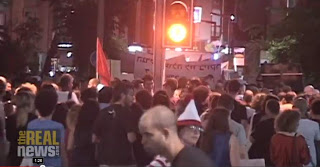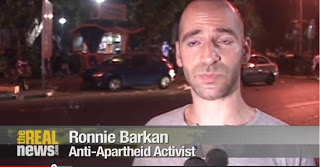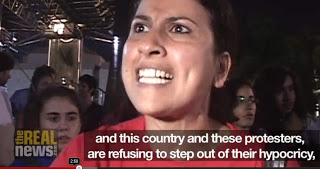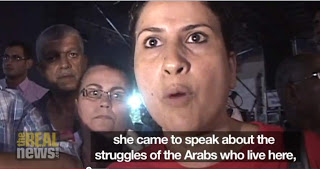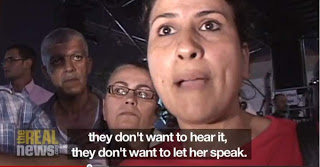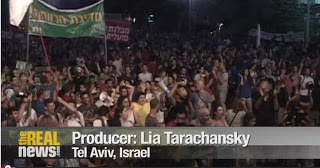Activists criticize economic protest movement for ignoring the Occupation and condition of Palestinians living in Israel
Watch full multipart The Real News in the Middle East
On June 2nd, Wafa Tiara, a Palestinian agricultural worker organized under the Ma’an union was supposed to address Israel’s J14 social justice movement. At the last minute the organizers decided not to let her speak.
The protest was meant to serve as an indicator of whether this movement, which began last summer, could restart after its quiet winter months. While last September saw the biggest protests in the country’s history with half a million people on the streets, only a few thousand turned out this time.
The movement started over the high cost of living in Israel and the large gap between the rich and the poor but three main criticisms amassed as the movement grew larger:
- its refusal to address Israel’s occupation of the Palestinian territories,
- its failure to address concerns of the Palestinian citizens of Israel and its
- failure to include Jewish minorities like Russian and Ethiopian immigrants, and the religious orthodox, while focusing on the Ashkenazi middle class.
The Real News’ Lia Tarachansky spoke to Alon-Lee Green and Eran Bril, two of the organizers of the protest that night, Asma Aghbarieh-Zahalka a representative of the Ma’an Union to which Wafa Tiara, belongs, activists Matan Kaminer and Ronnie Barkan, and journalist Noam Sheizaf.
